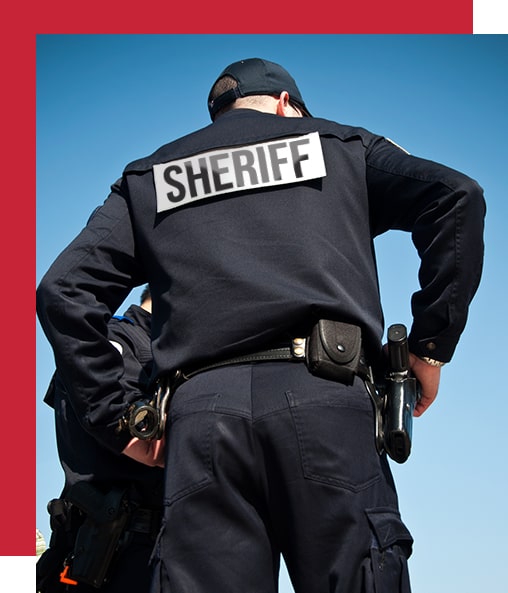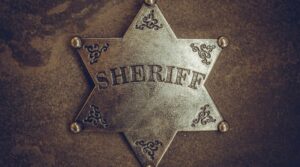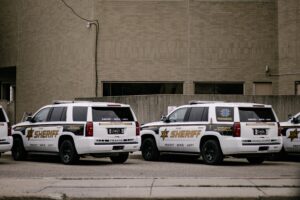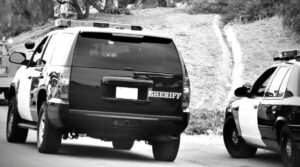Sheriffs play a unique and important role in law enforcement across the United States. They can sometimes be confused with state and local police, but the sheriff serves and holds a different role than your typical law enforcement officer.
What is a Sheriff?
By definition, “a sheriff is an official in a county or independent city responsible for keeping the peace and enforcing the law. Unlike most officials in law enforcement in the United States, sheriffs are usually elected… Elected sheriffs are accountable directly to their county’s citizens, their state’s constitution, and ultimately the United States Constitution.” (Wikipedia)
So, most local law enforcement officers report to the local police chief, who then reports to the local politicians. Sheriffs report directly to the people who elected them, cutting out the politicians in between.
Sheriffs have arguably never been more critical than they are right now, and it’s bringing the position under attack in many places across the country.
With the rise of essential issues like gun laws, sheriffs have been the lone warriors standing between the local people and politicians at local and state levels who are pushing through unconstitutional laws and agendas.
Why Do Sheriff’s Elections Matter?
Sheriffs have the ability to reject enforcing laws they see as unconstitutional, protecting their local constituents from government overreach, and protecting their rights. Sheriffs in many states have been exercising these powers more frequently in recent years, and it’s become a problem for politicians who have an agenda.
This reality is no better displayed than when dealing with gun control policies. The Constitution enshrines the people’s right to keep and bear arms in the 2nd Amendment. But now more than ever, the federal government is attempting to restrict and regulate this right. Sheriffs are their last line of defense when the local government responds by implementing 2nd Amendment Sanctuaries. Will they enforce federal policies or uphold the rights being protected in their local jurisdiction?
Sheriff’s Issues to Watch:
Here is a look at issues and trends that will have an impact on sheriffs moving forward:
PROPOSED FEDERAL GUN REGISTRY
Representative Sheila Jackson Lee (D-TX) has proposed Bill H.R. 127, otherwise known as the “Sabika Sheikh Firearm Licensing and Registration Act.” H.R. 127 would create a federal firearms database overseen by the Attorney General’s Office and would require all legally owned firearms to be registered by the federal government and allow restrictions on ammunition and licensing based on federal guidelines.
2ND AMENDMENT SANCTUARIES
State and local legislation and ordinances in opposition to federal gun control policies, such as H.R. 127, would put Sheriffs between the federal government and local laws. Sheriffs would be caught in the middle, having to choose between enforcing federal policies and local government who view them to be in violation of the Constitution. In Missouri, for instance, state legislators have proposed laws that would allow citizens to sue departments who enforce unconstitutional federal gun laws.
UNELECTED SHERIFFS
King County, Washington took up a number of measures this year which would negatively affect law enforcement within its jurisdiction. Charter Amendment 5 was passed this election cycle, transforming the King County Sheriffs Department into an appointed position. If such a trend continues, it will continue to erode the democratic process in law enforcement, leaving such important positions to be filled by partisan politicians overseeing an agenda.
CIVILIAN REVIEW BOARDS
Under the banner of “accountability” politicians and legislators have been pushing for more and more civilian review boards of local law enforcement, also known as Police Oversight Boards. These review boards often become political in nature and those appointed to them do not need to have experience in Law Enforcement.
In Arizona, however, legislators are seeking to change this. If passed, HB 2462 would require by law that anyone appointed to a civilian review board in the state complete “A COMMUNITY COLLEGE POLICE ACADEMY” and “AT LEAST TWENTY HOURS OF VIRTUAL LAW ENFORCEMENT TRAINING.”
COVID-19 RESTRICTIONS
For the past few years, the nation has been gripped by the Covid-19 pandemic and the varied responses implemented by state governments across the nation. Under the order of emergency powers, governors from coast to coast have mandated restrictions on businesses and individuals that many in opposition contend are violations of American Civil Liberties. In counties around the country, Sheriffs have entered the fray.
In New York, local sheriffs refused to fine private citizens for breaching mandated gathering limitations. In North Dakota, sheriffs have refused to enforce mask mandates. Sheriffs will have a big role to play as governments continue to try restricting citizens from their Constitutional Rights.

Related Articles

Election Alert: Constitutional Sheriffs Running for Office in TX and AZ
Over the past few years, the role of local elected officials has risen in prominence,

Sheriffs Challenge Federal Law – Could They Succeed?
Generally, the public thinks of Sheriffs as the embodiment of Law Enforcement in their area.

North Carolina Sheriffs Required to Work with ICE, Court Mandates
In March 2023, the North Carolina House of Representatives approved House Bill 10, also known

Sheriff’s Stand on Gun Rights: A Look at Their Views on the Constitution
In recent years, some sheriffs have embraced the notion that they are the ultimate defenders
